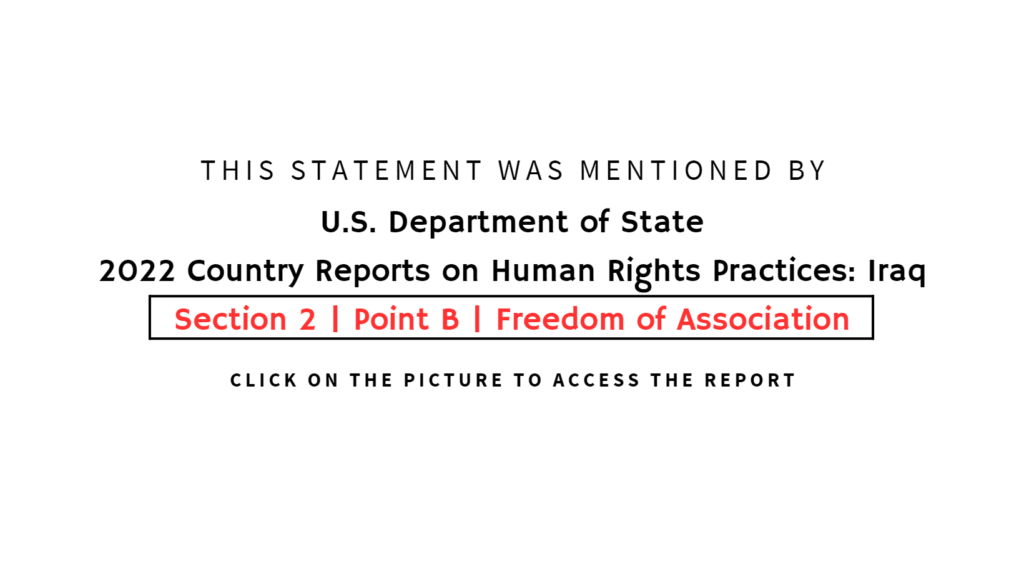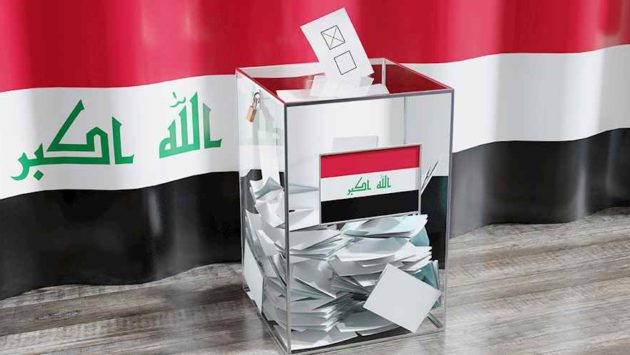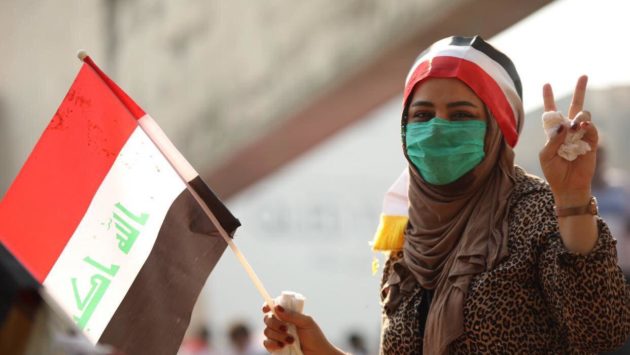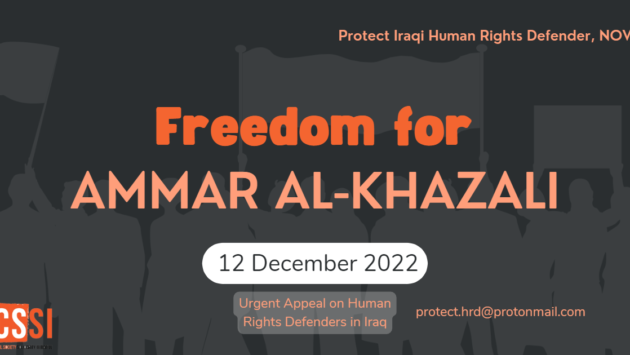Statement of the permanent working group countering shrinking civil society space in Iraq

Despite the space guaranteed by the Iraqi constitution for the work of civil society (Article 45), that gives individuals the right to gather in various formations and names to contribute to the development process and political, economic and social action, the reality and application are not consistent with what stipulated in the constitution. Iraq’s international obligations are clearly supporting the right to assemble and form associations, unions, organizations and federations.
While it is forbidden to work and form student unions in all of Iraq except for the Kurdistan Region, student unions in the latter fall under the control and influence of a limited number of political forces and large parties. The matter is different with labor and professional unions. They are subject to multiple restrictions, including preventing them from working in the public sector or preventing union pluralism while a significant number of active labor unions are not recognized yet. Many voluntary groups are active in Iraq, but they face difficulties in obtaining approvals to carry out their activities; some of them are subject to restrictions. There are also government initiatives that have tried to legislate a law that limits the work of voluntary groups and forces them to enter into one centralized framework.
While there is a legal framework and a mandate to register NGOs, we follow with concern the cases of structural violations that civil society faces on a daily basis. In addition, individual violations against some organizations threaten to turn the organized legal framework into a means of restriction, domination and control over the civil society movement.
In general, many newly established civil society formations face complex obstacles that stand in the way of organizing their entities legally and gaining legal personality. The requirements and mechanism of the registration process for NGOs are not in line with reality. A specific form of the internal structure of these groups is imposed, and sometimes even their choice of name, structure and internal organization is controlled. While the pre-registered organizations suffer from the problem of maintaining their legal and administrative status properly.
While there are many requirements, the response from the concerned departments is delayed and sometimes its headquarters are not accessible. For example, the site of the Iraqi NGOs Department is located in the Green Zone, which is difficult to obtain approvals to visit. The NGOs Department in Erbil limits the continuation of the proper legal status of each registered organization by obtaining an annual administrative order that requires a lot of effort, work and follow-up; however obtaining it is not guaranteed! Coordination is not done between the NGOs Department in Baghdad and those similar to it in Erbil. This leads to the existence of two mechanisms that do not harmonize and increase the burden on organizations that carry out more than one registration process.
Although many organizations have fulfilled these complex requirements, they are still unable to operate freely as the authorities usually require additional measures in the form of requiring them to obtain prior security or administrative approvals to carry out some activities and a number of programs. The security elements are also harassing some workers and activists in organizations. There have been cases where some organizations asked not to hire one or more people because of their civil activism or because they are human rights’ defenders. For example, on 25th Jun 2022, a workshop which was conducted by Al-Firdaws Association in Basra was stormed by the National Security forces who stopped the activity for no reason.
Civil society organizations, which are close to nonviolent civil movement, protest and demand political, social and economic reform, are in many cases threatened with blacklisting or closure without legal reason. Noting that Iraq has already signed the International Covenant on Civil and Political Rights, which guarantees freedom of assembly and contribution to public affairs.
As mentioned above, a number of international and Iraqi civil activists gathered to confront this reality, calling on effective local and international organizations and stakeholders to take action to confront the phenomenon of restrictions on civil society and launched the Masaha (Space in Arabic) Initiative – which is a permanent working group to counter the shrinking civil society space in Iraq.
The group will focus on monitoring the workspace of civil society in Iraq with the aim of identifying violations and threats to civil society, advocating in order to ensure freedom of action and the application of constitutional obligations and international standards to ensure that no obstacles are placed that restrict the work of civil society or its freedom to contribute to development.
MASAHA is an open working group to accommodate all civil society actors operating or concerned in Iraq, where all those interested can engage in the movement to defend a safe and free space for community work in Iraq. The group will periodically issue documentation reports and hold meetings with stakeholders, actors and influencers to achieve the working group’s goal and objectives.
* If you or your organization is interested in communicating with us, you can write to us via this email: masaha.iq@protonmail.com




